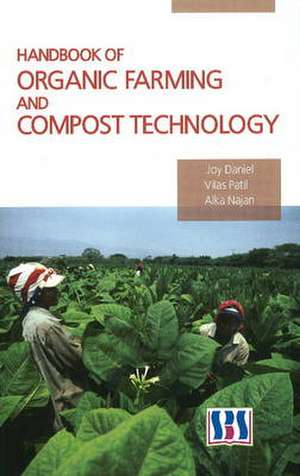Handbook of Organic Farming and Compost Technology
Autor Joy Daniel, Vilas Patil, Alka Najanen Limba Engleză Hardback – 13 apr 2010
Preț: 655.28 lei
Preț vechi: 832.20 lei
-21% Nou
Puncte Express: 983
Preț estimativ în valută:
125.40€ • 136.17$ • 105.34£
125.40€ • 136.17$ • 105.34£
Carte indisponibilă temporar
Doresc să fiu notificat când acest titlu va fi disponibil:
Se trimite...
Preluare comenzi: 021 569.72.76
Specificații
ISBN-13: 9789380090085
ISBN-10: 9380090080
Pagini: 757
Ilustrații: b/w photos & tables
Dimensiuni: 148 x 221 x 65 mm
Greutate: 1.09 kg
Editura: SBS Publishers
ISBN-10: 9380090080
Pagini: 757
Ilustrații: b/w photos & tables
Dimensiuni: 148 x 221 x 65 mm
Greutate: 1.09 kg
Editura: SBS Publishers
